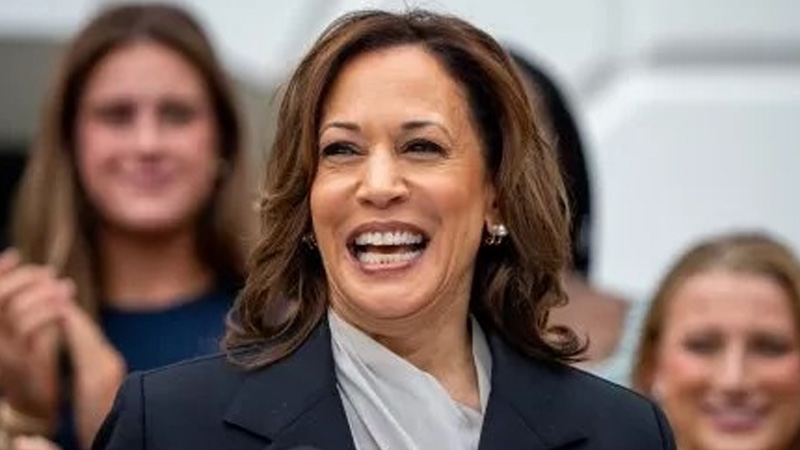What Harris Told Her Husband at Gas Station as She Buys a Bag of Doritos

Photo Credit: Getty Images
Vice President Kamala Harris made a stop at a Sheetz gas station in Pittsburgh, Pennsylvania, during her tour to the Democratic National Committee (DNC) convention in Chicago.
During a stop at a Sheetz gas station, Vice President Kamala Harris sparked controversy when she made a light-hearted remark to her husband, Doug Emhoff, while purchasing a bag of Doritos.
According to the video posted on Monday, August 19, 2024, Harris, who was traveling to the Democratic National Committee convention in Chicago, drew criticism after she was heard saying, “Aw Dougy, there they are!” as Emhoff handed her the snack.
Accompanied by her husband, Doug Emhoff, and Minnesota Governor Tim Walz with his wife, Gwen Walz, the group was traveling to the convention, which is set to begin on Monday.
The visit to the gas station seemed to be an effort by Harris to connect with everyday Americans, aiming to present a relatable image. However, the reaction from the public was notably subdued.
The atmosphere was strikingly quiet as Harris, along with the Walz couple, entered the gas station. Unlike what might have been expected for such a high-profile figure, there were no cheers or visible excitement from bystanders.
The stop ended up being less of a public interaction and more of a media spectacle, with reporters watching the Vice President’s every move.
Harris’s attempt to appear down-to-earth included her buying a bag of Doritos, an action that was closely observed by the press.
The scene, which might have been intended to show her engaging in an everyday activity, instead highlighted the disconnect between political figures and the public at times.
As her husband, Doug Emhoff, handed her the bag of Doritos, Harris made a light-hearted remark, saying, “Aw Dougy, there they are!”
The brief encounter at the gas station, though seemingly insignificant, sparked some controversy and criticism.
The lack of interaction with voters and the seemingly staged nature of the visit raised questions about the authenticity of such public appearances by politicians.
Critics argued that instead of fostering genuine connections with the electorate, these moments can sometimes come off as performative and disconnected from the real issues that matter to everyday citizens.
The stop at Sheetz was just one of several planned appearances on the road to the DNC convention, where Harris and her colleagues are expected to engage in more substantial political discussions and campaigning.
However, this particular incident has already garnered attention, not for the policy discussions or campaign strategies, but for the optics and perceived intentions behind such public interactions.
As Harris continues on her journey to the convention, the Sheetz stop serves as a reminder of the challenges politicians face in balancing public perception with the need to maintain a relatable image.





